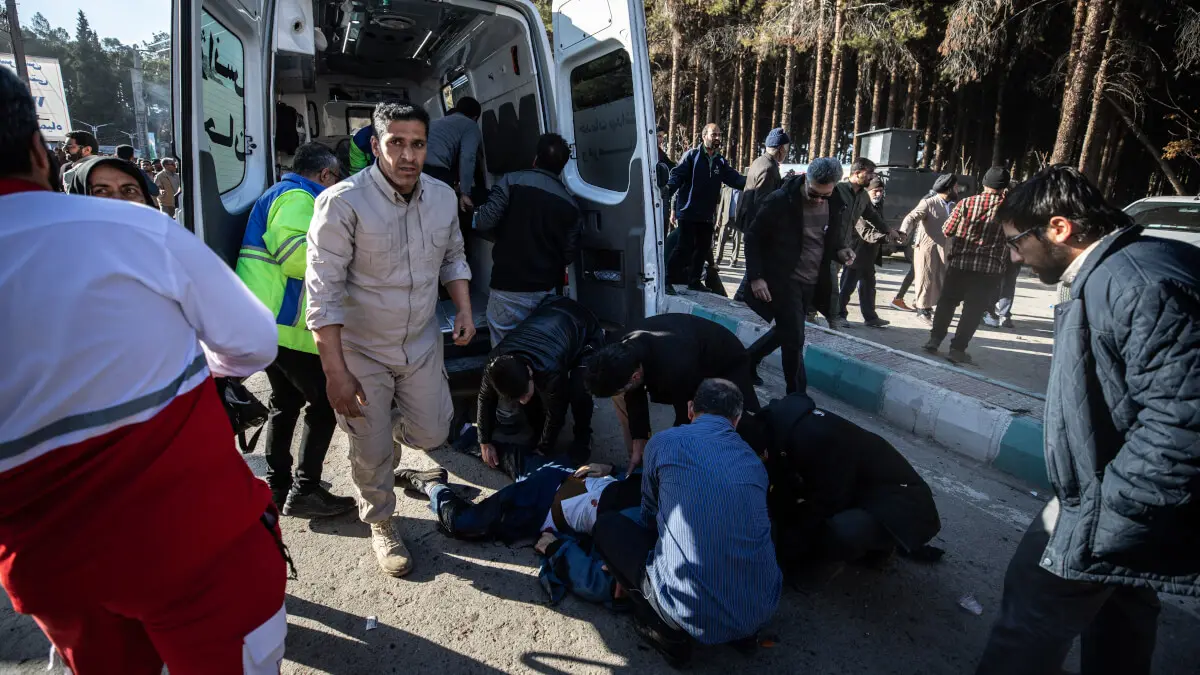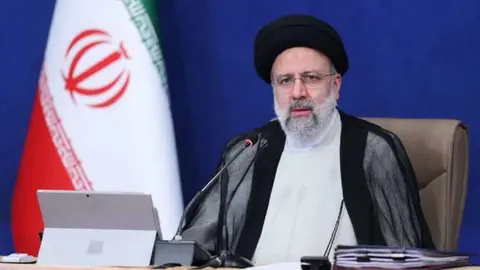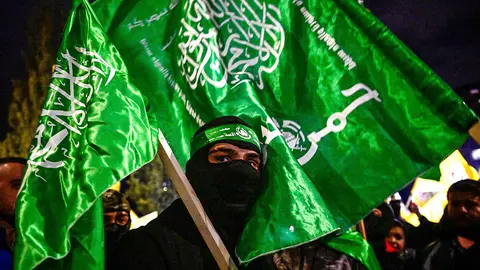Iran accuses Israel of attack in Kerman, vows "severe" retribution

The recent explosions near the tomb of Iranian General Qassem Soleimani on the fourth anniversary of his death have raised tensions in the Middle East to a new high. The attack in Kerman, which has left more than 80 dead and more than 200 wounded, comes just a day after a suspected Israeli attack on a Beirut suburb that killed Hamas's number two, Saleh Al-Arouri.
The attack in Iran, the worst in the Islamic Republic's history, also coincides with the war between Israel and Hamas, a conflict that has already claimed thousands of lives with no prospect of a near resolution, and more so after recent events.
While no terrorist group or country has claimed responsibility for the attack, Iranian President Ebrahim Raisi has blamed Israel for the attacks, saying it will pay a "heavy price".
"I warn the Zionist regime that it will pay a heavy price for this crime and the crimes it has committed," Raisi said in a televised address from Tehran after the blasts. The Iranian president warned that Israel's punishment will be "regrettable and severe".
A US official consulted by CNN notes, meanwhile, that based simply on the modus operandi, "it looks like a terrorist attack, the kind of thing we've seen Daesh do in the past." "And as far as we know, I think that's our current assumption at this point," he adds.
Officials lowered the death toll in the attack in Kerman, #Iran from 103 to 84. After the attack yesterday, #IRGCterrorists Quds Force commander Esmail Ghaani visited Soleimani's grave in Kerman today. The lack of regime official--and especially IRGC--casualties is rather… pic.twitter.com/S6sOr3Jt6O
— Jason Brodsky (@JasonMBrodsky) January 4, 2024
State Department spokesman Matthew Miller has also denied Israel's involvement in the attack, as well as Washington's. "The United States was not involved in any way. Nor do we have any reason to believe that Israel was involved in this explosion," Miller said.
Meanwhile, Israeli army spokesman Daniel Hagari said his country was "focused on the war with Hamas" after being asked about the attack in Iran.
Iran has suffered several terrorist attacks in the past. The latest was in 2022 in Shiraz, where 15 people were killed and 40 others injured.
Footage after the explosion near Kerman city cemetery where Qasem Soleimani is buried.
— Clash Report (@clashreport) January 3, 2024
Today is the fourth anniversary of Soleimani's assassination.
Iranian sources say it was "LPG cylinder". Second explosion sound was also heard.
Casulties reported. pic.twitter.com/HoaO7mrVWZ
However, the Iranian authorities point the finger directly at Israel, as well as the US. "The responsibility for this crime lies with the American and Zionist regimes," stresses the Iranian president's political vice-president, Mohammad Jamshidi.
Even Iranian Foreign Minister Hossein Amir-Abdollahian has called for a UN investigation into what happened.
Iran's supreme leader, Ayatollah Ali Khamenei, also warned that there will be a "harsh response". "You must know that the brilliant soldiers of Soleimani's path will not tolerate your evil and crimes," Khamenei said, addressing the perpetrators of the attack.
#BREAKING
— Aleph א (@no_itsmyturn) January 3, 2024
Explosions during Soleimani 's anniversary in Kerman, #Iran
At least 20 were killed pic.twitter.com/a0zhKc9n7P
Soleimani, considered one of Iran's most important men, was head of the Revolutionary Guard's Quds Force and leader of Iranian military operations in countries such as Iraq and Syria until his assassination on 3 January 2020 at Baghdad airport at the hands of the United States.
Regarding Iran's possible response to this attack of which it accuses Israel, Daniel Bashandeh, an Iranian political analyst, tells Atalayar that "the Iranian regime will never take action if it jeopardises its survival in Iran". "Tehran is framing what has happened under its revolutionary rhetoric. Establishing the division between enemies and supporters. In line with the latest protests," he explains.
Bashandeh believes that if it is eventually found to be a third state and the regime does not make a move, "it will have little credibility abroad". "For the time being, it is likely that revolutionary rhetoric rather than political action will continue", he adds.
The enemy should know the soldiers on Soleimani’s bright path won’t tolerate their vileness & crime. The hands stained with the blood of innocent people & the corrupt, evil minds that misdirected them will definitely be the target of a severe pounding & a deserving retribution.
— Khamenei.ir (@khamenei_ir) January 3, 2024
The political analyst also recalls that this attack takes place in a context of tension due to the war between Israel and Hamas, a conflict in which "Iran has remained in the background" despite Israeli pressure.
Last week, an Israeli air strike on a Damascus neighbourhood killed Seyed Razi Mousavi, an adviser to the Iranian Revolutionary Guard in Syria.
"Netanyahu needs several open fronts and to maintain a state of war and tension in order to remain in power," Bashandeh points out. "Hamas's war is not enough to keep a whole country mobilised. It is putting pressure on Hezbollah and its goal is to move the threat as far away from its border as possible," he concludes.










